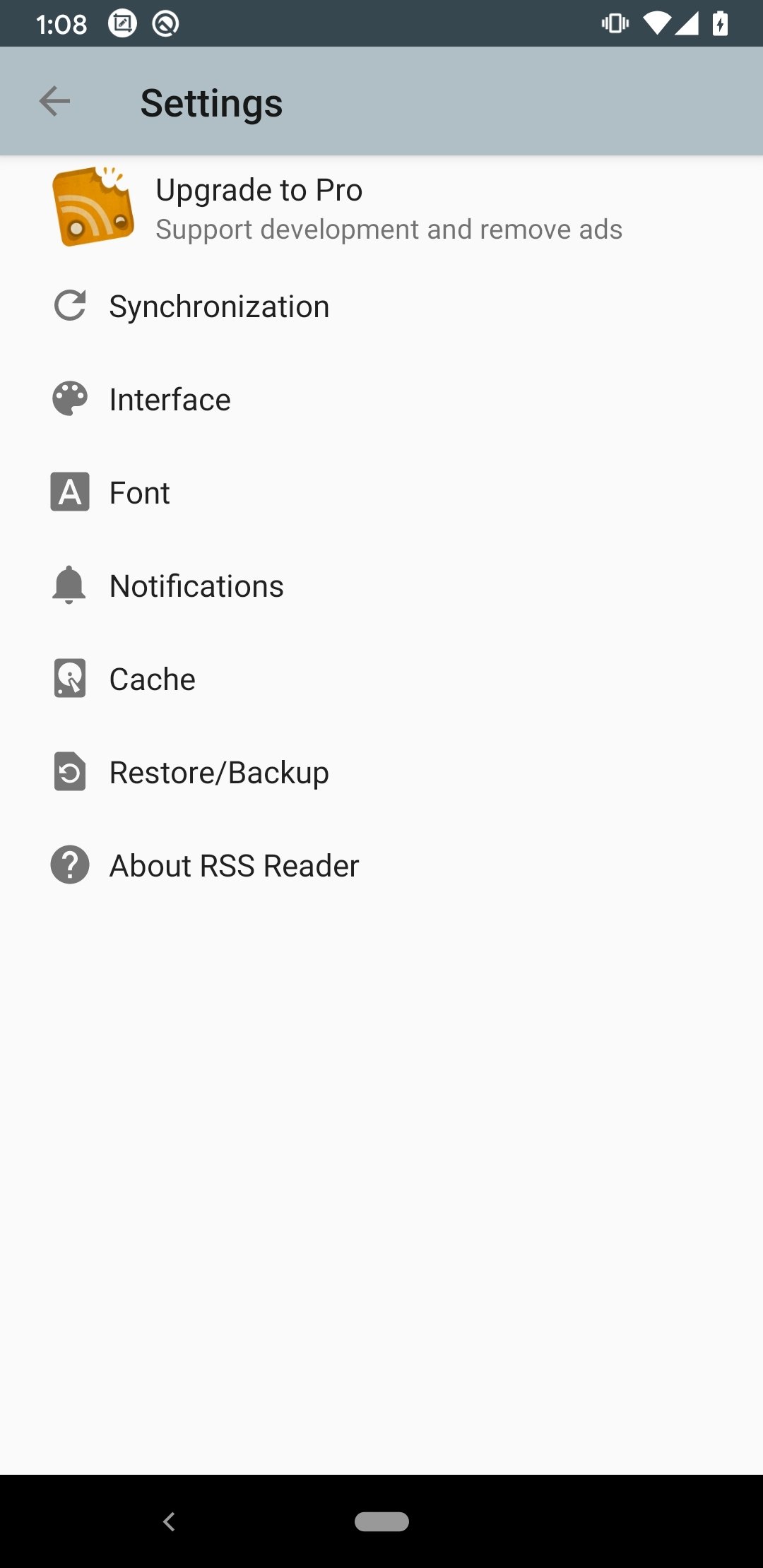

- #Dark rss reader windows 8 manual
- #Dark rss reader windows 8 code
- #Dark rss reader windows 8 download
Alternatively, from a command prompt in the rss_reader folder, type cargo run, which will build and then run the program.ĭown in the VS Code Terminal pane, you can see that Cargo successfully downloads and compiles the windows crate, caching the results, and using them to make subsequent builds complete in less time. There are also Debug and Run commands embedded inside the text editor. If you see any unexpected messages, then make sure you've successfully completed the Hello, world! tutorial (Rust with VS Code). Now let's confirm that we can build and run by clicking Run > Run Without Debugging (or pressing Ctrl+F5). You'll also see a few extra lines of code below to set a user-agent header, since some RSS feeds require that. Now we can iterate over the resulting items, and let's print out just the titles. A more complex app with a graphical user interface will frequently use async. Alternatively, we could use the await operator within an async function to cooperatively wait for the results. Let feed = client.RetrieveFeedAsync(&uri)?.get()? īecause RetrieveFeedAsync is an asynchronous API, we use the blocking get function to keep the example simple. Now we can use the SyndicationClient to retrieve the feed.


All objects in the windows crate follow the Rust convention and name their constructors new.
#Dark rss reader windows 8 download
To download the RSS feed, we'll create a new SyndicationClient. The WinRT API uses HSTRING extensively for string values. We use that to construct an HSTRING reference from a Rust string literal. For more info about this feature of Rust, see The ? operator for easier error handling.Īlso notice the h! macro from the windows crate.
#Dark rss reader windows 8 manual
That means we don't have to do a bunch of manual error handling for this simple example. To save on typing, we do that to use Rust's error-propagation and short-circuiting logic. You can see the question-mark operator at the end of the line of code. windows::core::Result helps us with error propagation, and concise error handling. That will make things easier, as it's common to deal with errors from operating system (OS) APIs. Notice that the return type of the main function is a Result, from windows::core. To create a new Uri, replace Cargo's default main function with this: // src\main.rs There's the Uri type that we mentioned earlier. The use declaration shortens the path to the types that we'll be using. Add the following use statement to the beginning of main.rs: // src\main.rs There you'll find the Cargo default "Hello, world!" code. Then, open the rss_reader project's src/main.rs source code file. To keep build times fast, we'll select just the Foundation_Collections and Web_Syndication features that we need for this code.

A Cargo.toml file is a text file that describes a Rust project, including any dependencies it has.Īdd a dependency on the windows crate, as shown in the listing below. First, open the Cargo.toml file at the root of the project. Let's implement the main rss_reader project. Then open the rss_reader project in VS Code. > Created binary (application) `rss_reader` package Using Cargo, create a new Rust project named rss_reader, and cd to the newly-created folder: > cargo new rss_reader Launch a command prompt ( cmd.exe), and cd to a folder where you want to keep your Rust projects. Now let's try out Rust for Windows by writing a simple console app that downloads the titles of blog posts from a Really Simple Syndication (RSS) feed. The previous topic introduced Rust for Windows, and the windows crate.


 0 kommentar(er)
0 kommentar(er)
